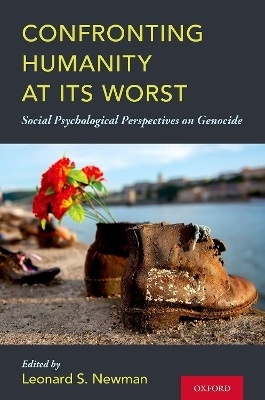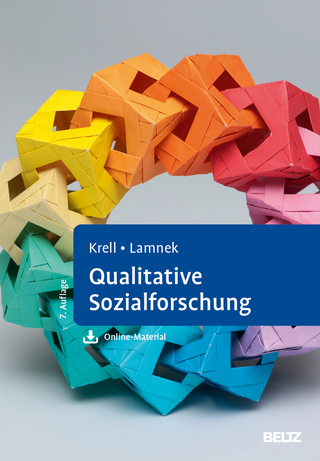
Confronting Humanity at its Worst
Oxford University Press Inc (Verlag)
978-0-19-068594-2 (ISBN)
Leonard S. Newman earned his PhD in social-personality psychology at New York University. He is an associate professor at Syracuse University, where he serves as Associate Chair of the psychology department. Dr. Newman is co-editor of Understanding Genocide: The Social Psychology of the Holocaust and co-author of Social Psychology: A Storytelling Approach (both with Ralph Erber). His research interests include social stigma, dehumanization, psychological defense, and public perceptions of psychological research.
Acknowledgements
PART 1: Lighting the Fuse: Psychological and Emotional Predispositions For Extreme Intergroup Violence
Chapter 1: Genocide and the Male Warrior Psychology
Adam Tratner and Melissa McDonald
Chapter 2: Obedient authoritarians or lay Darwinists? Ideological motivations of genocide
Micha? Bilewicz
Chapter 3: How Envy Can Incite Anti-Semitism and Genocide
Richard H. Smith and Charles E. Hoogland
PART 2: The Genocidal Mindset
Chapter 4: Emotional Sources of Intergroup Atrocities
Michael J. A. Wohl, Nassim Tabri, and Eran Halperin
Chapter 5: The many roles of dehumanization in genocide
Nick Haslam
Chapter 6: Moral Courage and Moral Disregard: Different Sides of the Same Coin?
Allison B. Mueller and Linda J. Skitka
Chapter 7: Understanding Intergroup Violence and Its Aftermath From Perpetrator and Victim Perspectives
Mengyao Li and Bernhard Leidner
PART 3: Evil is Not Inevitable: New Perspectives on Obedience and Social Influence
Chapter 8: Engaged Followership and Engaged Fellowship: Towards a Unified Analysis of Harm-doing and Helping
Stephen D. Reicher and S. Alexander Haslam
Chapter 9: In what way is evil 'banal'? Hanna Arendt's (interactionist) thesis
Leonard S. Newman
PART 4: Never Again, Never Forget, Never Forgive, or Never Mind: The Aftermath of Extreme Intergroup Violence
Chapter 10: The Aftermath of Genocide: Divergent Social Psychological Processes among Victim and Perpetrator Groups
Johanna Ray Vollhardt and Michelle Sinayobye Twali
Chapter 11: Understanding and Counteracting Genocide Denial
Rezarta Bilali, Yeshim Iqbal, and Samuel Freel
Chapter 12: Why do people become perpetrators of genocide? The dangers of explanation
Ying Tang and Leonard S. Newman
| Erscheinungsdatum | 07.11.2019 |
|---|---|
| Verlagsort | New York |
| Sprache | englisch |
| Maße | 236 x 155 mm |
| Gewicht | 680 g |
| Themenwelt | Geisteswissenschaften ► Geschichte |
| Geisteswissenschaften ► Psychologie ► Sozialpsychologie | |
| Sozialwissenschaften ► Politik / Verwaltung ► Politische Theorie | |
| ISBN-10 | 0-19-068594-8 / 0190685948 |
| ISBN-13 | 978-0-19-068594-2 / 9780190685942 |
| Zustand | Neuware |
| Haben Sie eine Frage zum Produkt? |
aus dem Bereich


